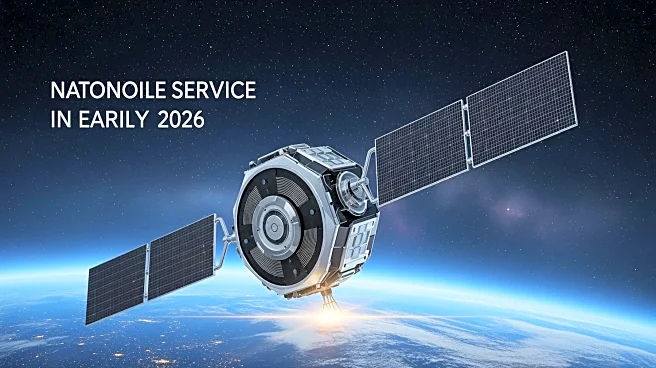What's Happening?
AST SpaceMobile has announced plans to launch its next-generation BlueBird satellites, aiming to provide intermittent nationwide service in selected markets by early 2026. The company plans to achieve
continuous service later in the year as more satellites are added. AST's CEO, Abel Avellan, revealed that the initial constellation will consist of 25 BlueBird satellites, which will allow operators to start trial services. The company has secured $1 billion in revenue commitments from commercial partners, including Verizon in the US and stc in Saudi Arabia. AST plans to have 45 to 60 satellites in orbit by the end of 2026, expanding service to strategic markets such as the US, Europe, and Japan.
Why It's Important?
The launch of AST SpaceMobile's satellite service is significant for the telecommunications industry, particularly for mobile operators like AT&T and Verizon, who are looking to enhance their direct-to-device services. The expansion of satellite broadband can improve connectivity in rural and underserved areas, potentially reducing the digital divide. AST's partnerships and revenue commitments indicate strong commercial interest and potential growth in satellite communications. The company's plans align with broader industry trends towards satellite-based internet services, which could disrupt traditional broadband providers and offer new opportunities for innovation and competition.
What's Next?
AST SpaceMobile is set to begin its satellite launches in mid-December, with subsequent launches planned every one to two months. The company aims to ramp up its manufacturing capacity to produce six satellites per month starting in December. As AST progresses with its launch schedule, major stakeholders such as AT&T and Verizon may introduce new services based on AST's satellite network. The company's expansion into government contracts and international markets could further bolster its position in the satellite communications sector.
Beyond the Headlines
AST SpaceMobile's efforts to secure S-Band spectrum and its focus on dual-use applications for government agencies highlight the strategic importance of satellite technology in national security and defense. The company's ambitious plans could set new standards for satellite manufacturing and deployment, potentially influencing regulatory and policy frameworks in the telecommunications industry.











